Lyric’s stark, fierce ‘Jenůfa’ again showed how aggressive company has upped theater game
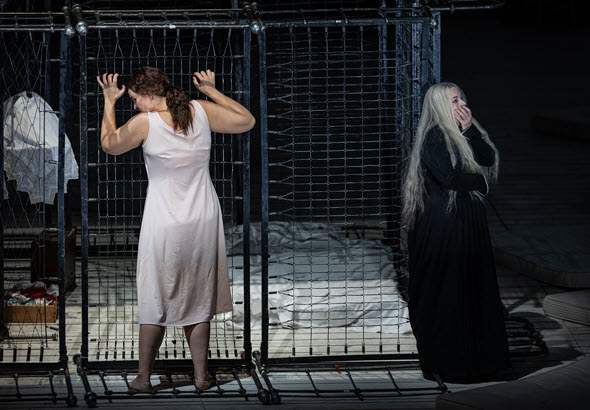
Norwegian soprano Lise Davidsen as Jenůfa, and German soprano Nina Stemme as her stepmother, in the dystopian world of Claus Guth’s production. (Michael Brosilow photos)
Commentary: The stunning November production reaffirmed Lyric Opera’s place in Chicago’s vibrant and progressive theater scene.
By Nancy Malitz
This is Chicago, a city famous for spoken-theater companies that push drama to the ragged edge, finding new ways into the classics of Sophocles, Chekhov, Ibsen, O’Neill, Miller, Williams, Albee, and Shakespeare. In recent years, Lyric Opera of Chicago has become likewise aggressive at offering novel approaches to opera’s greatest hits.
I say bring it!
The Lyric’s lightning bolt of the fall season was Janáček’s 1904 opera “Jenůfa.” The soul-baring village tale, with an all-star cast that played through November, was given a savage, dystopian treatment by German director Claus Guth. Norwegian soprano Lise Davidsen starred as the pregnant young Jenůfa, seduced and abandoned, with Swedish soprano Nina Stemme as Jenůfa’s desperate stepmother, in a strict double bind of her own.
Casts simply do not get better than this. Davidsen is a rare wonder, statuesque and in her prime, her huge voice capable of extraordinary bursts of radiance. And Stemme, a former Brünnhilde at Lyric, is one of the greatest dramatic sopranos of our time. The two thrived in Guth’s brutal staging, first given at London’s Royal Opera House in 2021 with a different cast and revived for five Lyric performances.
The nightmarish production shows the women at their silent work as if in an enormous cage, performing identical, repetitive labors under the ominous watch of a giant crow. Stacked bedframes form their enclosure, define their cloistered function and serve as see-through walls in this monitored, no-exit world. The startling set, by Canadian designer Michael Levine, is absent any sense of freedom or privacy at all, also absent color except for the cynical brightness of Jenůfa’s wedding of convenience to her seducer’s younger brother.
Guth’s directorial approach reminded me that in 1904, when the opera was first performed, Sigmund Freud had already written about dreams, obsessions, hysteria, neuroses, psycho-sexual development and the psychology of defensive behavior. Jenůfa, as depicted here, is that contemporary girl, imprisoned in her low-ceilinged, wire mesh “bedroom” as she endures her growing secret.
Jenůfa is not only pregnant but also desperate to prevent her philandering lover Števa from abandoning her. To no avail. Complicating matters further, the young woman’s stepmother is the village’s so-called Kostelnička (or sacristan), a local church functionary charged with the care of sacred items, and thus, a public upholder of strict moral virtue. In her determination to keep matters secret from the villagers, and to secure an eventual husband for Jenůfa, the stepmother hides the young woman away during her final months of pregnancy. Some weeks after the babe is born, she drugs Jenůfa, drowns the babe and when the girl awakens tells her that she has slept for days and the child has died.
The two women are hardly the only characters caught in this suffocating community trap. A quick wedding, arranged for Jenůfa with Števa’s younger brother Laca, occurs in spite of the fact that Laca, who actually loves the girl, has slashed her face in a fit of sibling jealousy. Playboy Števa, for whom Jenůfa was just a casual yesterday, was sung by American tenor Richard Trey Smagur with macho bravado. Czech tenor Pavel Černoch captured the violent fury of the thwarted young swain Laca, who eventually takes her hand.
If iconoclastic productions like Guth’s can upstage the effort of singers and musicians, that did not happen here. The remarkable working out of these painful matters was made credible by Janáček’s rich, suspensefully paced and ultimately redemptive music. Conductor Jakub Hrůša, in impressive Lyric debut, was hardly unknown in Chicago: The 42-year-old was the dynamo at the helm of Mahler’s Ninth Symphony across town with the Chicago Symphony Orchestra in June. Both of Hrůša’s Chicago appearances were highlights of the 2023 classical calendar. He is currently music director designate at the Royal Opera, taking full charge in 2025. As far as I am concerned, his dates are not to miss henceforth.
Neither to be underestimated is the contribution of the Lyric Opera Orchestra. If the nuptial event at the end of Jenůfa was bright and flower-strewn, cynical in the context, Hrůša’s forces in the pit made it clear this bleak tale does not end without hope. As Davidsen’s Jenůfa accepted the younger brother’s hand in a burst of radiant, redemptive singing, the measured swelling of orchestral warmth tipped the balance.
Chicago is fortunate that the Lyric orchestra – together with the summer Grant Park Orchestra, touring musicals, and nearby suburban ensembles – provides sufficient employment to keep a full complement of high-caliber musicians at the ready. The Lyric ensemble, in its 68th season, was nominated Best Opera Orchestra by the International Opera Awards in 2018, alongside the Bayerisches Staatsorchester, the Bayreuth Festival, the Deutsche Oper, and Teatro alla Scala. Today, this orchestra is even better.
The Chicago revival of Guth’s “Jenůfa” staging was an apt reminder of the increasing inclination of American opera companies to test novel, sometimes provocative, treatments of familiar operatic standards, in addition to commissioning new works outright. Lyric Opera has been active both ways:
This production recalled Peter Sellars’ iconoclastic framing of Mozart classics throughout the 1980s – “Cosi fan tutte” on Cape Cod, “The Marriage of Figaro” at a luxe flat in New York City’s Trump Tower and “Don Giovanni” in Spanish Harlem. And it was back in 1988 that Sellars staged Wagner’s “Tannhäuser” here as the story of “a defrocked, Jimmy Swaggart-style televangelist,” to quote one fascinated visiting critic.
World premieres by the Lyric have included William Bolcom’s “A View from the Bridge,” a 1999 adaptation of Arthur Miller’s play that focused on the mid-20th-century American immigrant experience, when so many Europeans were fleeing post-WWII hardships. It was later taken up by the Metropolitan Opera. Of recent note, in early 2023, Lyric introduced “The Factotum,” a heartfelt barbershop opera out of Chicago’s south side, riffing on Rossini’s beloved “The Barber of Seville,” with music by producer, composer, and instrumentalist DJ King Rico and Will Liverman.
But Lyric remains bruised by the misfortune of British director David Pountney’s ambitious, graphic novel treatment of Wagner’s massive four-opera “Ring” cycle. The project was abruptly cut short of its final chapter when Covid struck. The last segment, “Götterdämmerung” (“Twilight of the Gods”) has yet to come to the stage. A long-planned total-immersion festival – which would have drawn Wagnerites from around the world to this mythical saga of giants, dragons, and flying goddesses – never happened.
Perhaps, at some point, Lyric will be able to revive the massive international festival project as originally intended. (General director Anthony Freud, who soldiered the Lyric through that devastating upset as general director, departs at the end of the current season.) In the disruptive short term, without question, this company has taken a severe financial beating. But there remains exciting potential in Lyric’s ability to attract Chicago’s dauntless theater crowds with approaches that challenge preconceptions.
Intrepid directorial concepts of the classics are certainly routine at Steppenwolf, Goodman, Chicago Shakespeare Theater, Hyde Park’s Court Theatre, Glencoe’s Writers Theatre and sundry Chicagoland storefronts:
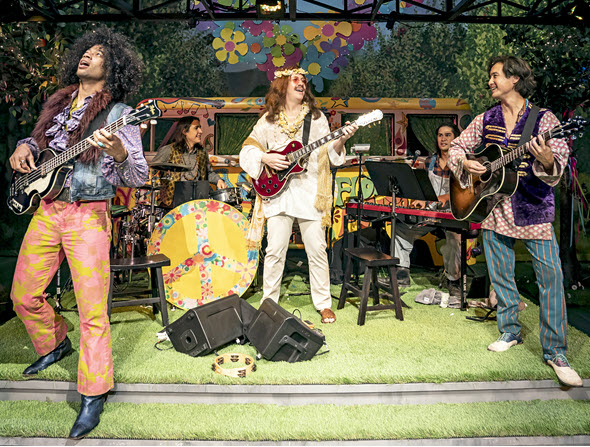
Chicago Shakespeare’s “As You Like It,” 2021, plugged into the Beatles but true to the Bard in Jonathan Munby’s production. (Liz Lauren photo)
At Chicago Shakespeare alone in recent seasons, we were given “Julius Caesar” with automatic weapons, “As You Like It” as a hippie-era RV romp in the woods, “King Lear” brooding to Frank Sinatra, and so on through the canon. Lyric’s vigorous stirring of the operatic status quo is also solidly in line with what has been happening at the San Francisco Opera, the Metropolitan Opera, and companies in St. Louis and Detroit.
Humans haven’t really changed so much, as any reading of the Greek classics will tell you. It’s good to be reminded in fresh ways. 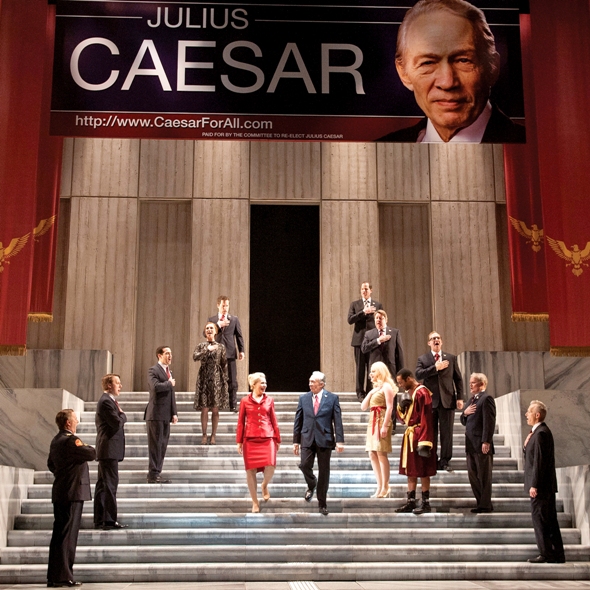
Chicago Shakespeare, 2013: “Julius Caesar” with automatic weapons, cellphones. (Liz Lauren)

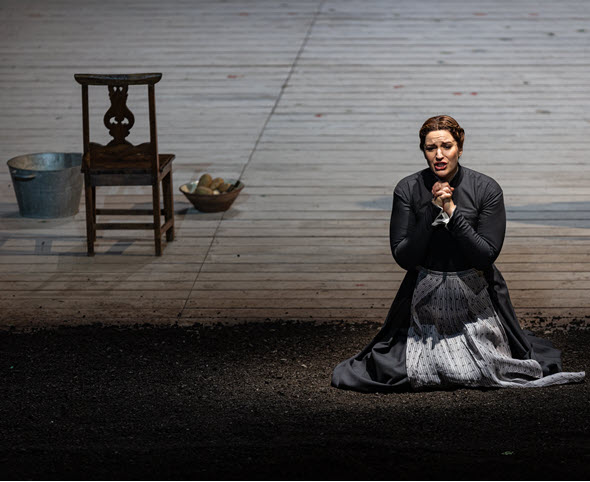
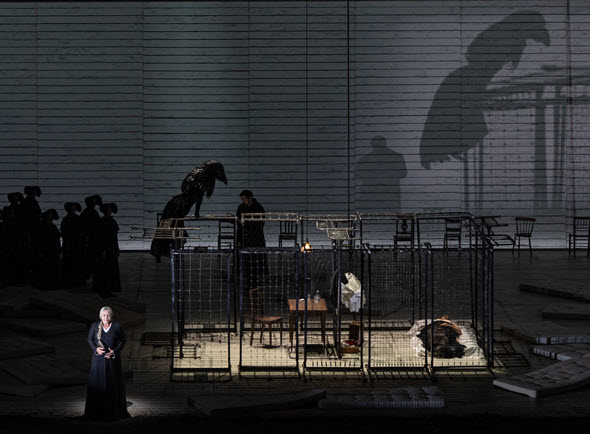
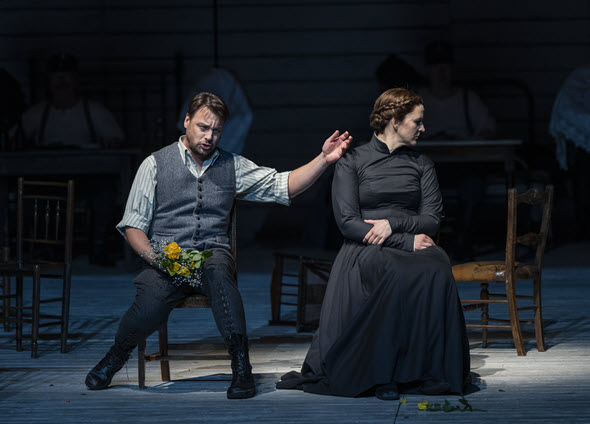
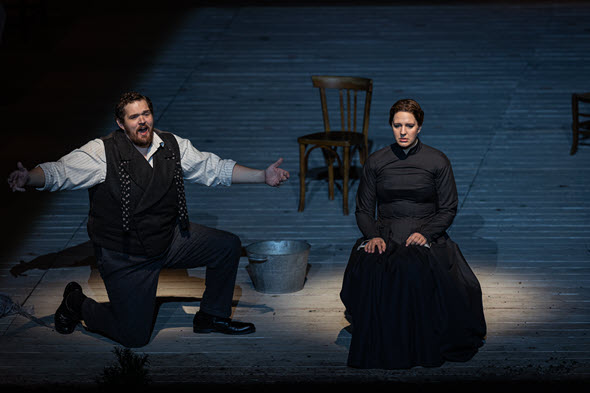
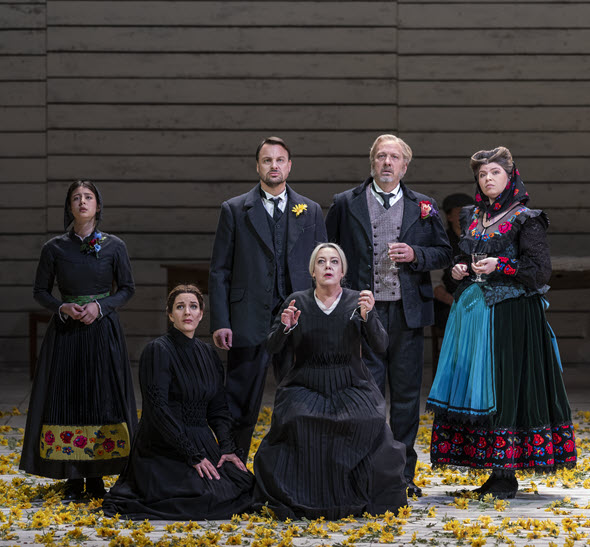
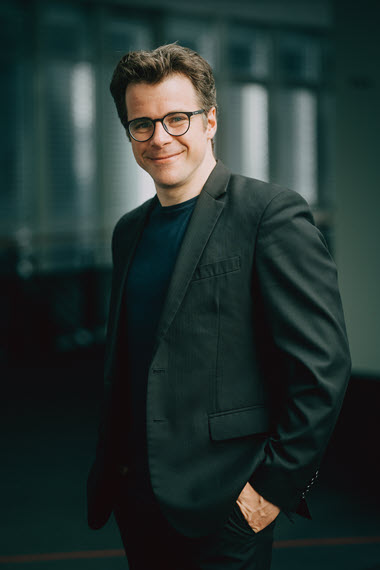
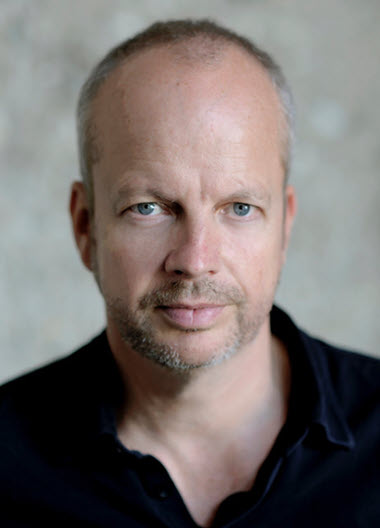
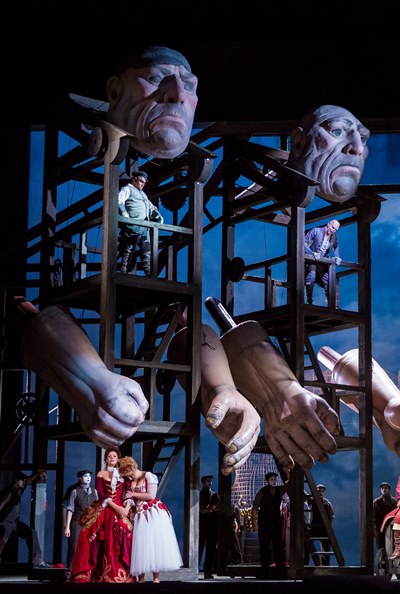

Thanks for sharing all these highlights.